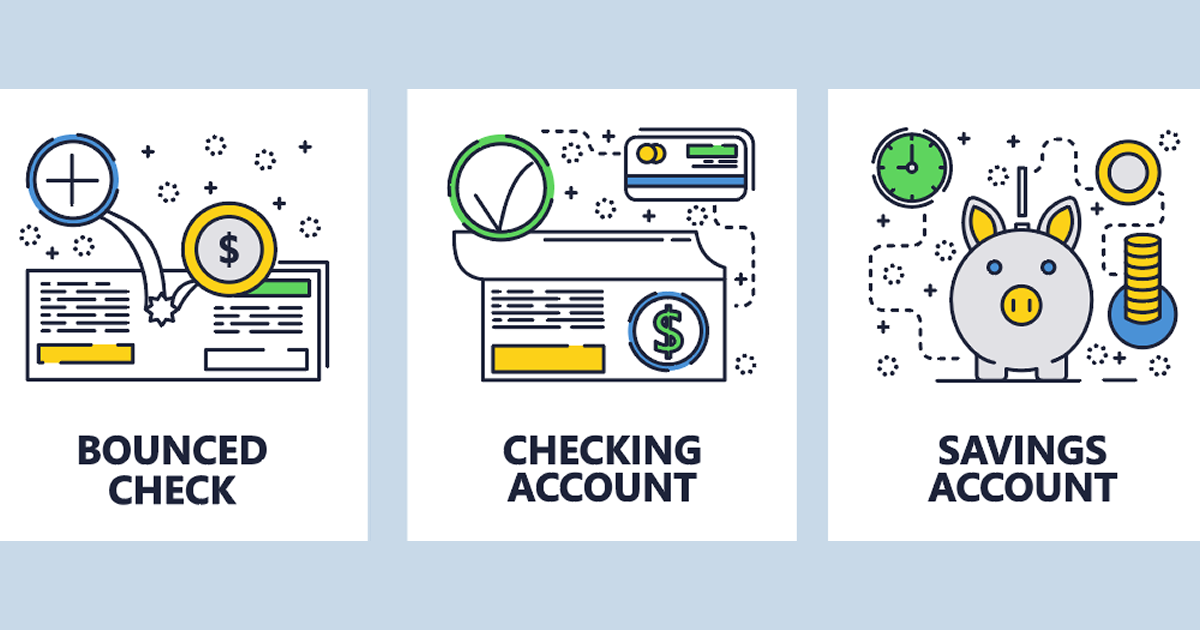How to Handle Joint Accounts During a Divorce

Description of Joint Accounts
Joint accounts are commonly used by couples to handle their finances together. These accounts can be convenient for paying shared expenses such as rent, utilities, and groceries. However, when a couple decides to divorce, joint accounts can become a major source of disputes and complications. It is important to fully understand the legal implications of joint accounts and how to handle them during divorce proceedings. In this article, we will provide valuable information on how to separate joint accounts during divorce, deal with joint accounts after divorce, as well as withdrawing money from joint accounts before divorce.
Reasons for Separating Joint Accounts During Divorce
Going through a divorce can be a stressful and challenging process, especially when it comes to splitting finances. One of the essential steps to take when getting a divorce is to separate joint accounts. This is because joint accounts, including bank accounts, credit cards, and investments, can be a source of contention between both parties. Here are reasons why separating joint accounts during a divorce is essential:
Protecting Each Party’s Rights
Separating joint accounts during a divorce is crucial in protecting both parties’ rights. This step ensures that neither party has control over the other’s finances, reducing the risk of financial manipulation or abuse. With separate accounts, each spouse has control over their assets and can make independent financial decisions without interference or pressure from the other spouse.
Preserve Financial Status Quo
Splitting finances is a complicated process. With joint accounts, it can be challenging to claim ownership of assets and liabilities, especially when there are multiple automatic payments linked to the account. Without separating joint accounts, one spouse may risk having their credit score affected if the other spouse defaults on payments. Therefore, separating joint accounts can help preserve the financial status quo at the time of separation.
Protect Against Acrimonious Divorce
Divorce proceedings can turn ugly, with each party fighting for their fair share of marital assets. When this happens, it may be difficult to trust each other with joint accounts. Separating bank accounts and other finances can help avoid disputes about who has control over the funds. This way, both spouses feel secure with their finances and have peace of mind during the divorce process.
Ensuring Each Spouse’s Financial Security
Separating joint accounts can help ensure that each spouse has financial security. During the divorce proceedings, both parties are expected to maintain their usual standard of living. Having separate accounts can help with this, as they can access their funds freely without interference from the other party. Also, it can help ensure that each spouse has enough money to cover their legal fees, living expenses, and other costs.
In conclusion, separating joint accounts during a divorce is essential in protecting each party’s rights, preserving the financial status quo, ensuring financial security, and avoiding acrimonious divorce. By taking this step, both parties can have control over their finances and make independent decisions regarding their assets.
Legal Considerations
Legal Considerations:
When it comes to separating joint accounts during divorce, several legal considerations must be taken into account. One of the primary concerns is ensuring that each party’s rights are protected, which can be achieved by creating separate accounts. Additionally, several financial and legal implications must also be considered, such as community property laws, tax consequences, and potential disputes over credit card debt and mortgage payments. Therefore, it’s crucial to consult with a divorce attorney and financial institution to understand all the legal considerations before separating joint accounts.
Community Property Law and Separation of Accounts
Married couples who reside in certain states in the US are subject to community property laws when it comes to determining the division of their assets during a divorce. Community property law dictates that all assets acquired during the course of a marriage are owned equally by both spouses, regardless of who earned or paid for them. This includes joint bank accounts.
In community property states, specifically Arizona, California, Idaho, Louisiana, Nevada, New Mexico, Texas, Washington, and Wisconsin, the separation of joint bank accounts during divorce proceedings is governed by these laws. It is important to understand that community property laws only apply to property acquired or earned during the marriage and not to separate property that one spouse brought into the marriage or inherited or received as a gift during the marriage.
When it comes to the separation of joint bank accounts in the context of community property law, it is crucial to understand that these funds are considered marital assets and are subject to equitable division between the spouses. However, this may not necessarily mean that they will be divided equally. Multiple legal considerations need to be examined before a final determination is made.
One of the primary legal considerations is determining how the joint bank account was used during the marriage. If the account was used solely to pay household bills and expenses, it may be considered community property and divided equally. However, if one spouse can demonstrate that they were the primary contributor to the account through additional deposits or by using it to run a business, they may be entitled to a greater share. Additionally, any debts or obligations associated with the joint bank account, such as outstanding loans and credit card debt, must also be taken into account during the division of marital assets.
In some cases, spouses may choose to withdraw money from a joint account before or during a divorce proceeding. It is important to note that any funds withdrawn in this manner may also be subject to examination and inclusion as marital assets. Additionally, withdrawing funds from a joint account without the consent of both parties can result in legal consequences, including criminal contempt charges.
In summary, community property laws greatly impact the division of marital assets, including joint bank accounts, during divorce proceedings. Legal considerations such as account usage, contributions, and obligations associated with the account, and the timing and nature of any withdrawals must all be taken into account in order to ensure an equitable division of these assets. If in doubt, it is always advised to seek the services of a competent family law attorney.
Requirements for Splitting Accounts According to the Law
During a divorce, splitting joint accounts can be a complicated and contentious process, especially when it comes to financial assets. To avoid disputes and legal issues down the line, it is essential to ensure that all legal requirements are met when dividing assets. Here are some legal requirements to follow when splitting joint accounts during divorce:
Qualified Domestic Relations Order (QDRO): A QDRO is a legal document that provides instructions on how to divide a workplace retirement plan, such as a 401(k) or pension, between spouses during a divorce. Without a QDRO, the withdrawals from a 401(k) plan or similar workplace retirement plan may be subject to taxes and penalties. Therefore, a QDRO is essential to ensure that both parties receive their fair share of the marital assets.
Transfer Incident to Divorce Form: For financial institutions that offer individual retirement accounts (IRAs) or Health Savings Accounts (HSAs), a transfer incident to divorce form and a copy of the divorce decree must be provided to split the accounts. This form ensures that there are no tax penalties associated with the transfer of the accounts between spouses.
Community Property Law: It is necessary to establish which accounts are separate property and which ones are classified as community or marital property before splitting joint bank accounts. It is important to note that community property laws vary by state, and it is best to consult with a divorce attorney who has experience in your specific region.
Marital Property: Assets acquired during the marriage, either jointly or individually, are generally considered marital property that can be divided between spouses during a divorce. Therefore, marital property includes joint bank accounts, investment accounts, and other financial assets that were acquired during the marriage.
In conclusion, it is essential to follow legal requirements when splitting joint accounts during divorce. A QDRO is necessary for splitting a workplace retirement plan, while financial institutions offering IRAs or HSAs require a transfer incident to divorce form and a copy of the divorce decree. Establishing which accounts are separate property and which ones are classified as community or marital property is also essential in dividing joint bank accounts according to community property law.
Duties of Each Spouse in Divorce Proceedings
During a divorce, both spouses have a set of duties and responsibilities that need to be fulfilled to ensure a smooth and fair separation. The duties of each spouse may vary depending on the specifics of the case, but some of the common ones include:
1. Attend Court Proceedings: Both spouses are required to attend court proceedings, including hearings, depositions, and trials. If a spouse fails to appear in court, they may face legal consequences and may risk losing their rights to child custody or visitation.
2. Provide Financial Information: Both spouses are required to provide full and accurate financial information to the court. This includes information regarding their income, assets, debts, and expenses. Failure to provide this information may result in legal penalties or sanctions.
3. Participate in Negotiations: Many divorces are settled outside of court through negotiations and mediation. Both spouses are expected to participate in these negotiations and work towards a mutually acceptable settlement.
4. Separate Joint Assets and Liabilities: One of the primary duties of each spouse in divorce proceedings is to work towards separating joint assets and liabilities. These may include joint bank accounts, investment accounts, real estate, and personal property. Each spouse will need to work together to determine how these assets should be divided fairly.
5. Keep Communication Lines Open: Communication is key during divorce proceedings. Both spouses should strive to keep communication lines open and transparent to ensure that there are no misunderstandings or miscommunications. This includes communicating about the division of assets, child custody, and visitation schedules.
In conclusion, divorces can be difficult and emotionally draining. However, it is important for both spouses to fulfill their duties and obligations to ensure a fair and equitable separation. By working together and communicating effectively, both parties can achieve a successful resolution to their divorce proceedings.
Need for Professional Assistance from a Divorce Attorney
Going through a divorce can be a daunting experience, especially when it comes to separating joint accounts. It’s imperative to seek professional assistance from a divorce attorney to ensure that everything is done correctly and legally during this difficult time.
A divorce attorney can guide you through the legal considerations and community property laws that may apply to your situation. Depending on the state you reside in, community property laws may dictate how joint accounts will be divided between both parties. A divorce attorney can help you understand what these laws are and how they apply to your case.
When it comes to separating joint accounts, there are certain requirements that must be met. A divorce attorney can help ensure that these requirements are met, such as obtaining a court order and notifying the financial institutions involved. They can advise you on the specific steps you need to take and make sure that everything is done correctly.
There are several financial institutions that may be involved in the separation of joint accounts, including banks, credit unions, and other financial service providers. Your divorce attorney can work with these institutions to ensure that the accounts are divided correctly and that your rights are protected.
In addition to separating joint accounts, a divorce attorney can also assist you with other financial matters related to your divorce. For example, they can help with the division of property, retirement accounts, and any debts or liabilities that may need to be resolved.
Ultimately, the need for professional assistance from a divorce attorney when it comes to separating joint accounts cannot be overstated. They can provide invaluable guidance, support, and legal expertise to help ensure that your financial rights are protected during this challenging time.
Financial Institutions Involved in the Process
During a divorce, there are many financial concerns to consider, including the separation of joint accounts. Financial institutions play a crucial role in this process, as banks, credit unions, and other service providers must be notified and take action to divide assets and protect the rights of both parties. In this article, we will explore the role of financial institutions during divorce and provide guidance on how to navigate this often complex and sensitive situation.
Joint Bank Accounts and Credit Cards Requiring Separation
Separating Joint Bank Accounts and Credit Cards During Divorce Proceedings
Divorce can be an emotionally taxing process, and separating assets can often be complicated. Joint bank accounts and credit cards are no exception. However, it’s important to address these accounts early on during divorce proceedings to prevent further complications. Here are some necessary steps to separate joint bank accounts and credit cards during a divorce:
List All Joint Accounts and Credit Cards
The first step is to make a list of all the joint accounts and credit cards that need to be separated. This includes checking, savings, and credit card accounts. It’s important to note that joint accounts and credit cards can have different terms and policies for separation, so it’s crucial to be aware of all the details.
Close or Transfer Funds out of Joint Accounts
Once you’ve identified all the joint accounts, the second step is to close or transfer the funds out of them. You can either divide the funds evenly or work with a mediator or legal professional to decide the best course of action. It’s also important to notify any automatic payments linked to the joint account to ensure that they no longer withdraw funds.
Close Joint Credit Cards
Joint credit cards can be a major source of disagreement during a divorce. Therefore, it’s best to close the joint credit cards altogether to prevent further debt from being incurred. Both spouses need to agree to close the accounts, and it’s important to do so before the divorce is finalized. It’s also crucial to ensure that the credit card balances are paid off before closing the accounts.
Seek Legal Guidance
It’s recommended to seek legal guidance during the separation of joint bank accounts and credit cards to ensure that all assets are divided fairly and properly. A divorce attorney or financial advisor can provide advice and guidance to ensure that the process is smooth and equitable.
In conclusion, separating joint bank accounts and credit cards during a divorce can be a challenging process. However, by following the above steps and seeking legal guidance, both parties can ensure that their assets are divided fairly and properly. Remember to work together and communicate openly to avoid further complications.
Role of Financial Institutions in Splitting Joint Assets
Financial institutions play a crucial role in the separation of joint assets during divorce proceedings. This process can be complex, and many financial institutions require specific documentation and procedures to be followed in accordance with state laws.
When separating bank accounts, credit cards, and other assets, it is important to contact each respective financial institution to discuss the necessary steps and requirements. For example, the financial institution may require the submission of a “change of account registration” form and a copy of the divorce decree.
Financial institutions also play an important role in ensuring that assets are divided according to state laws. Depending on the state, assets may be divided using community property laws or equitable distribution. Financial institutions may need to verify this division of assets before funds or other assets can be transferred.
It is important to take stock of all joint assets to ensure that all financial products are identified and that the necessary steps are taken to separate them. Some financial products, such as retirement plans, may have specific rules regarding distribution during divorce proceedings. Understanding these rules can help avoid any financial penalties, tax consequences, or fees.
Overall, financial institutions play a critical role in helping individuals navigate the separation of joint assets during divorce proceedings. It is important to understand the necessary steps and requirements for each financial product, and to seek guidance from a financial advisor or attorney, if needed, to ensure that assets are divided fairly and properly.
Instructions on How to Close or Transfer Funds from Joint Accounts
During Divorce Proceedings
When going through a divorce, one of the most important steps is to separate your finances from your spouse. If you have joint accounts with your spouse, it is crucial to close or transfer funds from these accounts in a timely and appropriate manner. Here are some instructions on how to close or transfer funds from joint accounts during divorce proceedings:
1. Contact your bank – The first step is to contact your financial institution and request to freeze the joint account. They may require you to provide a copy of your divorce petition or other legal documentation.
2. Withdraw funds before filing for divorce – If you need to withdraw funds from the account, it is advisable to do so before filing for divorce or before any dissolution or automatic restraining orders go into effect. This will help avoid any legal complications.
3. Agree on the division of funds – If both parties agree on the division of the funds in the joint account, either individual may close the account and distribute the proceeds to each party as specified.
4. Legal proceedings – If the parties do not agree and must go through legal proceedings, a court order may be needed to determine the division of funds. In this case, it is important to consult with your divorce attorney to determine the best course of action.
In summary, separating joint accounts during divorce can be a complex process. However, by following these instructions and working with your financial institution and attorney, you can ensure that your finances are effectively and legally separated from your spouse.
Direct Deposit and Other Automatic Payments Affected by the Split
When couples who have joint bank accounts divorce, their automatic payments and direct deposit transactions can be severely impacted. Here’s what you need to know about the effects of splitting joint accounts on these types of payments:
Direct Deposits and Automatic Payments:
Direct deposits and automatic payments to a joint account are often used by spouses to manage their monthly bills and expenses. However, when the joint account is split during a divorce, it can create significant problems with these payments. Direct deposits may continue to be made to the account if not updated in a timely manner, and automatic payments may fail if there are insufficient funds in the account.
Updating Automatic Payments:
When separating joint accounts, it is important to update all automatic payment arrangements associated with the account. This includes notifying each company or biller of the new account information so payments can be correctly processed. Failure to do so can result in late payments, missed payments, and potential damage to credit scores.
Financial Institutions Involved:
Multiple financial institutions may need to be informed of the changes to the joint account. These institutions can include banks, credit card companies, and lenders. Each institution has a specific role in the management of accounts, and it is essential that each one is notified of the changes as soon as possible to prevent any issues.
Tax Consequences:
There may also be tax consequences associated with direct deposits and automatic payments made to a joint account during the divorce process. For example, if one spouse receives direct deposits for child support, this income must be reported on their tax return. It’s essential to consult with a tax professional to ensure that all tax implications are understood and addressed.
In conclusion, splitting joint accounts can create a lot of challenges for direct deposits and automatic payments. It is important to update all automatic payment arrangements, notify all relevant financial institutions of the changes, and seek professional guidance to address any potential tax implications. By taking these steps, you can help ensure a smooth transition during an already difficult time.
Tax Consequences of Separating Joint Accounts
When couples get divorced, they must separate their joint accounts, which can be a complex and daunting task. Amidst the legal and financial issues that arise during divorce proceedings, it’s important not to overlook the tax consequences of separating joint accounts. Failure to account for tax implications can be costly and result in penalties. Therefore, it is essential to consult with a tax professional who can guide you through this process and ensure that all tax-related matters are handled appropriately. In this article, we will discuss the tax consequences of separating joint accounts during divorce.
How Paying Income Taxes May be Affected by Splitting a Bank Account
When couples get divorced, one important consideration is how to divide their assets, including joint bank accounts. Separating joint accounts during a divorce can have tax consequences that need to be addressed.
First, it’s important to understand that the tax treatment of withdrawing money from a joint account before divorce will depend on whether it is a traditional or Roth account. Withdrawing money from a traditional account before age 59 and a half may result in a penalty of 10% as well as income taxes on the amount withdrawn. However, qualified withdrawals from a Roth account may not be subject to taxes or penalties.
When it comes to splitting a bank account during a divorce, the financial institutions involved will typically require documentation such as a divorce decree and a transfer incident to divorce form. This form is necessary for transferring funds from an individual retirement account (IRA) or a health savings account (HSA) incident to divorce.
For splitting a workplace retirement plan, such as a 401(k), a court-issued qualified domestic relations order (QDRO) is required. The QDRO outlines how the plan is to be divided and must be approved by both the plan administrator and the court.
It’s important to note that the tax consequences of separating joint accounts during divorce can be complex and may vary depending on individual circumstances. Seeking the advice of a financial or tax professional can help ensure that all tax implications are properly addressed.
Potential Issues With Social Security Benefits When Closing an Account
When a couple decides to end their marriage, one of the crucial steps is often closing joint accounts. However, closing a joint account during divorce can have several implications for Social Security benefits, which may result in financial setbacks for divorced individuals.
One of the significant issues that may arise is the impact on spousal benefits. When a couple is married for more than ten years, they become eligible for a spousal benefit, which is equivalent to half of the other spouse’s Social Security benefit. However, if the joint account is closed before the ten-year mark, the spousal benefit may be in jeopardy. In other words, divorced individuals may not enjoy the benefit they deserve if the joint account is closed too soon.
Another issue that can arise is with direct deposits of Social Security payments. When a joint account is closed, Social Security payments may continue to be deposited into the account, causing confusion and inconvenience. Divorced individuals will need to ensure that they update the Social Security Administration with their new banking information to avoid missing out on any benefits.
Moreover, divorced individuals may file for benefits based on their ex-spouse’s earnings as long as they were married for at least ten years, are unmarried and over 62 years of age, and have not claimed benefits based on their own earnings record. However, if the joint account is closed too soon, it may result in difficulties in verifying the shared earnings record, which may impact Social Security benefits.
In conclusion, closing a joint account during divorce can have significant implications for Social Security benefits. It is essential to keep the joint account open for at least ten years to avoid losing the spousal benefit. Additionally, divorced individuals must update their banking information with the Social Security Administration and avoid closing the joint account too soon to ensure they get the benefits they deserve.
Conclusion
In conclusion, it’s essential to understand the tax implications of separating joint accounts during divorce and afterward. As discussed, closing a joint account too soon can lead to a loss of spousal benefits, confusion with direct deposits of Social Security payments, and difficulties in verifying shared earnings records. It’s crucial for divorced individuals to update their banking information with the Social Security Administration and ensure they meet the ten-year marriage requirement for benefit eligibility.
Understanding the tax rules that apply to divorce and separation can help individuals avoid potential financial setbacks and ensure they receive the benefits they’re entitled to. Those going through a divorce or separation should work closely with a tax professional or divorce attorney to navigate the complex financial and legal issues surrounding these situations.
Readers may also find additional resources such as the IRS’s Publication 504 on Divorced or Separated Individuals and their FAQs on divorce and separation helpful in addressing their tax-related questions and concerns. Ultimately, being proactive and informed about tax rules and related issues can help ensure a smoother, more financially secure transition out of a marriage.
We also encourage you to educate yourself about the divorce process by attending a Second Saturday Divorce Workshop in your area.






